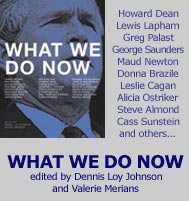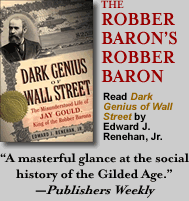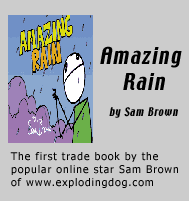

|
|
|

|
|
|
BOOKSELLER AT LARGE a MobyLives guest column by Dan Bloom |
|
| 4 JULY 2005 — I write this column from the island nation of Taiwan, far off most Americans' radar screens. I've been in Asia since 1991, five years in Japan and now eight years in Taiwan, and everyday is an adventure. I make my living as a freelance reporter and university lecturer, and I have a weekend hobby working as a book vendor in the country's colorful night markets. I sell my own books, nothing else. A few years ago, when a large publisher in Taipei asked me to write a book about my adventures in Taiwan, I jumped at the chance. I wrote the text in English, a collection of 32 short chapters on expat life in Taiwan, and a friend translated my English essays into Chinese and the book was published in Chinese — only Chinese. Titled something like "This is how I came to enjoy my life in Taiwan," the book was published in an edition of 3,000 copies, a normal run for books in Taiwan, and I was paid royalties of 10% around 30 days after publication for all 3,000 copies. The concept of "returns" or "remaindered books" does not exist in Taiwan, apparently. All writers here get paid for all books printed, 30 days after publication date. It's a nice deal, a nice way of treating authors. On the other hand, the concept of an "advance" is unheard of here. You write the book first, you get paid 30 days after publication for all copies printed, and you hope for a second printing . . . . In my case, the book did not sell very well in bookstores nationwide. That's an understatement, actually. The book did not sell at all. Even though the book was placed on the ''new books'' table at most large bookstores, there was little "name recognition" or even less title recognition. For most foreigners publishing books in a Chinese–speaking country, this is normal and I was not upset. However, I did want my book to reach readers, at least 3,000 readers, in order to help my publisher make its money back. A Taiwnese friend who ran a small tatooing stand in one of the local night markets suggested that I take some of my books and place them on a table in his booth and meet people face to face as they strolled through the evening flea market. "Try it," he said. "You can greet people with your smile, say a few words in Chinese or Taiwanese, introduce your book and see if you can sell it that way." I took his advice and set up my a table. Having never "performed" in public before, and having no idea how to be a nightmarket "barker,' I stood near by table, shouted out my sales chant (which in Chinese came to something like "Come here, come here, take a look at my new book! Just one hundred Taiwan dollars!") One hundred Taiwan dollars is equal to about three American dollars, so the price was right. Not only that, but the sight of seeing a big–nosed, smiling foreigner selling his own book in a local night market was enough to make people curious enough to approach me and start chatting in English, Chinese, Taiwanese, or Japanese. The first night I sold three books. Not bad, but most importantly, the evening sales gig helped me to get over my initial stage fright, and it also showed me that there was some potential there. I began selling my books on a nightly basis, visiting different night markets in various cities to widen my potential audience, and after two years of doing this, mostly on weekends when people are out strolling in the night markets in force, I had sold 5000 books. My publisher was so happy that he ordered a second printing and a third printing, and I went on to sell 7,500 books this way. Of course, selling the books at half their bookstore price meant that I didn't make much of a profit at all, but I accomplished two things: I found a steady readership for my book, and in the process, I became a kind of "ambassador of friendship" in Taiwan between the local population and the small group of expats from North America and Europe who call this island home now. As a result of my novel bookselling gig on the streets, meeting potential readers face to face, the national TV networks sent camera crews to interview me and the national newspapers ran stories in Chinese about "the foreigner who sells books with a smile." The publicity generated increased sales and led to a contract for a second book, also published in Chinese only, titled "I Love Taiwan's Night Markets." I've been selling my books this way for four years now, and although there are now five books in my Taiwan series, the bookstores still have a hard time selling any of them. That's okay with me. I am not a celebrity with name recognition, and I like things just the way they are. The night markets allow me to meet my readers, and all my books sell well now. Mission accomplished. Most importantly, I have had so much fun selling my books this way, and have learned so much about Taiwan by meeting and greeting so many people over a four year period, that I have become somewhat addicted to this weekend hobby of mine and I plan to continue selling my books this way. I'm still not a bestselling writer here, and I never will be one, but the experience and feedback from readers has been wonderful. I found the American Dream in Taiwan. Go figure. Dan Bloom is the author of Bubbie and Zadie Come to My House and It's Never Too Late to Begin Again in English, and several Chinese–language books for the Taiwan market. He has made his home in Asia since 1991. The Taiwan Ho website features this article about Bloom and his books. Link to this column. ©2005 Dan Bloom Previous columns: ENOUGH ALREADY WITH THE MFA BASHING . . . Regular contributor Steve Almond, an MFA grad who also teaches creative writing, responds to Elizabeth Clementson's column about the influence of MFA programs. DOWN WITH MFAs . . . In a guest column, MFA dropout and publisher Elizabeth Clementson say MFA programs are ruining literature and the publishing buisness. TELEVISION WITHOUT PITY . . . Tired of the short story writer's life, guest columnist Steve Almond explains why he's now writing television shows such as "Blog and Order." READING TO CHAIRS . . . When Quinn Dalton showed up at a bookstore to read from her new book, she was greeted by . . . empty chairs. In a guest column, she asks herself, "Why bother?" THE KILLER POET . . . When a big haired poet asks the literary gumshoe to whack a librarian, he feels the weight of the whole world of poetry on his shoulder. Will he do the right thing? |

|
||
|
Don't want to register for a site but need log on i.d.s and passwords? Get them at BugMeNot.com. MobyLives towers above all other literary weblogs. — The Complete Review Friday 8 July 2005 In Letters: Final MFA report issued . . . What happens if MFA people cross–breed with non–MFA people? And is this the final comment on the MFA brouhaha? . . . in the MobyLives letters section. Deep Throat's boss is dead . . . With Bob Woodward's new book out about Deep Throat, and just a month after breaking a 30 year silence on the subject, former FBI director L. Patrick Gray has died. According to a New York Times obituary, the cause was pancreatic cancer. Gray was 88. As the Times' Todd S. Purdum notes, Gray had been a Richard Nixon loyalist but eventually decided, "I made the gravest mistake of my 88 years" by working for Nixon. The Times piece seems as if it is trying to exonerate Gray by noting that "the record shows" he grew "concerned" about the role of Presidential aides early on in the Watergate fiasco. But Purdum also notes that "On orders from the White House, he also destroyed forged documents from the White House safe of one of the Watergate conspirators, E. Howard Hunt." I keep singing a song of myself . . . In a continuing effort to celebrate its 10th anniversary, Amazon.com has issued a press release announcing its "all–time bestselling authors, musicians and movies, and inducted them into the first–ever Amazon.com Hall of Fame." According to the release, The first five positions on the list were taken by: J.K. Rowling, Spencer Johnson, Nora Roberts, Dan Brown," and Dr. Seuss. William Shakespeare did not make the list. He only came in at number 26, says the release. UK ombudsman foisted on his own petard . . . The man who is the "overseer of press self–regulation" in England has decided to forgo a lucrative serialization deal for his new book for what he says are altruistic reasons, while others say he was pressured to do so. According to a Guardian report by Roy Greenslade, Sir Christopher Meyer, whose official title is "chairman of the Press Complaints Commission," says he will give the money to charity. "I know I can't take the money," says Meyer. "If I did so I'd have to resign from the PCC. From the outset I have made no attempt to conceal what I was doing and kept everyone abreast of what was happening." But Greenslade reports that a "fierce debate among his paymasters" may have influenced the decisions as well. More than that, the book, DC Confidential, about Meyers time as ambassador to the U.S., is expected to be controversial. Says Greenslade, "Some members are dismayed that Sir Christopher felt it necessary to write a book that is widely expected to provoke political controversy while chairman of the PCC." Kids: Do NOT sign out this book . . . A "legendary book" known as "The Book Wonderful" and "regarded by many bookbinders as one of the greatest modern bindings in the world — but haunted by tragedy and disaster," has been presented to the British Library, reports Maev Kennedy in a story for The Guardian. The book is a special edition of Omar Khayyam's Rubaiyat, translated by Edward Fitzgerald in an extraordinary edition with a cover consisting of "5,000 pieces of inlaid leather, ivory, silver and ebony, 600 sheets of 22&#$150;carat gold leaf, and 1,052 garnets, turquoises, topazes, olivines and an emerald." But a glimpse at its history takes the luster off those gems: The orignal copy " took two years to make, and sank with the Titanic in 1912. Its creator, Francis Sangorski, drowned in a bathing accident off Selsey Bill six weeks later. The second copy took Stanley Bray six years to recreate from Sangorski's original drawings, and was destroyed in the London Blitz." You could look it up . . . It's the 250th anniversary of Samuel Johnson Dictionary of the English Language , one of the very first great dictionaries, and, as such, reason enough to celebrate in itself. But as Jack Lynch observes in a New York Times commentary, Dr. Johnson's dictionary can also serve as "an unlikely guide to America's history" because the leading "members of the founding generation relied on Johnson when they wrote their most important works — the Declaration of Independence, the Constitution, the Bill of Rights and the Federalist Papers . . . " What's more, says Lynch, "his dictionary remains a living document, even today," because "lawyers and legal scholars have been using it to unpack the meanings of our founders' most important documents. In the last few years, Justices Ruth Bader Ginsburg, John Paul Stevens, Clarence Thomas and Chief Justice William H. Rehnquist of the Supreme Court have quoted Johnson in their opinions." Thus, says Lynch, even though Johnson "detested American democratic princilples . . . It is fitting that a young nation trying to shake off a king would be attracted to a lexicographer who rejected a tyrannical vision of the language." NOTE: Daily newspapers often change URLs when archiving, so some links won't work beyond the day they're first posted. Thursday 7 July 2005 What, hell was full? . . . Literary agent Martha Ivery — also know as Kelly O'Donnell — has been booked and "charged with mail fraud, bankruptcy fraud and fraud in connection with an access device, all felonies," according to an Albany Times–Union report by Alan Wechsler. "The 56–year–old woman faces up to 20 years in prison and a $250,000 fine if convicted." Wechsler says O'Donnell would advertise her literary agency in Writer's Digest and on the Internet, then tell customers that a fake publishing company owned by her alter ego Ivery would publish the book — apparently, for a fee. And, says Wechsler, "the requests for fees would keep coming: for publishing, editing, illustrations and extra copies, the indictment claims." Says one of her clients, "I was so gullible I couldn't believe it." he said. He says in hindsight "there were things that should have made him suspicious," including the fact that "e–mails from Ivery were riddled with misspellings and bad grammar." Also, when he "asked Ivery to fix some typos in his manuscript, she told him it wasn't worth bothering about, since it wouldn't help sales." The role of librarians in the campaign to end poverty . . . Resonating with the Live 8 concerts, as well as the protests in Edinburg calling on the members of the G8 Summit to fight hunger, a major conference of information services professionals has concluded that libraries and librarians are an essential component to the campaign to end poverty. A report from CILIP, the Chartered Institute of Library and Information Professionals, concluded that "library and information services are vital in every country if the Make Poverty History campaign is to succeed." The biennial Umbrella conference, held in Manchester, issued a resolution saying "library and information services underpin information, literacy and the learning process," and "literacy and learning underpin all our aspirations, locally and globally, for ourselves, our communities and our economies including equality, social justice and the eradication of poverty." Says CILIP president Debby Shorley, "If governments are serious about empowering countries to eradicate poverty, they must recognise the need for library and information services that are as effective as those we in the developed world take for granted." Amazon's celebration of itself gets a little weirder . . . As part of Amazon.com's 10th anniversary celebration, Harrison Ford, Jason Alexander, or musician Moby will "be turning up on US doorsteps to personally deliver Amazon products," reports an Agence France Presse wire story. Stars will deliver to randomly selected customers products that related to their fame — Ford will deliver a boxed set of Raiders of the Lost Ark, for example — and "each special delivery will be webcast on Amazon.com." It's not politics as usual at Politics & Prose . . . It may be the country's most famous independent bookstore, but its reputation may be a little inaccurate in one sense — it's not necessarily the lefty bastion everyone thinks it is. In a profile of Washington's Politics & Prose bookstore for The Book Standard, Patrick J. Eves says that even though co–owner Carla Cohen admits her clientele is "politically liberal," conservative books such as Unfit for Command and Bernard Goldberg's Bias have sold well there. "Part of the shop's success has to do with its aggressive efforts to woo customers who are obsessed with neither politics nor prose," he says. Cohen does admit one conservative book hasn't done well though: The Truth About Hillary. It wasn't politics, however: If it was "a careful work of journalism, people would have bought it," she says. From the names you never thought you'd see together department . . . A brief fashion report on Fashion Wire Daily gives a new twist to the idea of literary influence. As Godfrey Deeny reports: "It was fitting that in a week when French cable TV was featuring the movie version of William S. Boroughs' The Naked Lunch, that we should see the latest men's collection from Yves Saint Laurent, whose inspiration was a key character in the novel and film." The "inspiration" in question was, apparently, Sheltering Sky author Paul Bowles, whose "spirit . . . wafted through [Saint Laurent's new] collection, helping to create some very classy clothes albeit in an uneven collection." NOTE: Daily newspapers often change URLs when archiving, so some links won't work beyond the day they're first posted. Wednesday 6 July 2005 Amazon doing great after ten years — except for one little–bitty problem . . . July 16 will mark the 10th anniversary of Amazon.com, and an Associated Press wire report by Elizabeth Gillespie marks the occasion with a laudatory overview of the company including an interview with founder Jeff Bezos. He says he never planned to sell anything but books. However, he says, "We actually started to get e–mails from customers saying, 'Would you consider selling music, because I'd really like to buy music this way, and DVDs, and electronics?'" Today, as Gillespie notes, "the man who has grown accustomed to being hailed the king of Internet commerce runs a global powerhouse that did nearly $7 billion in sales last year, dealing in everything from banjo cases to wild boar baby back ribs." Gillespie's report does, however, include one rather large mistake: she reports that "it took several years to post a profit." While Amazon has claimed a "pro–forma" profit — an accounting method that does not include debt beyond the reporting period — it has not posted a profit in its ten years of existence. Tough spring for Algonquin . . . Algonquin "has been hit by a remarkable string of bad luck this spring," according to a Publishers Weekly report by Steven Zeitchik. "First, Heather Lende, author of the small–town–Alaska memoir If You Lived Here, I'd Know Your Name got into a terrifying bicycle accident, getting hit by a truck just days before her tour was to start. (She's recovering, but doctors have said she may have to spend up to a year in a wheelchair)." Then, reports Zeitchik, "just three days before her own tour was to kick off in June, Betsy Carter, author of the first novel, The Orange Blossom Special, . . . was felled by Lyme disease and advised to stay home. Her tour has been cancelled pending further notice." Algonquin has made author tours a key element of its fiction campaign, notes Zeitchik, and "Its current struggles highlight how, even in the age of satellite media and remote publicity, small publishers still depend heavily on in-person events." Afolabi wins Cain prize . . . S.A. Afolabi, a"former book store clerk from Nigeria," has been announced as the winner of the 2005 Caine Prize for African Writing," reports an Associated Press wire story. Afolabi won the so–called "African Booker," worth $15,000, for Monday Morning, "a short story exploring how families respond to the dislocations of exile." The Random House – W.H. Smith war — really, it's for everybody . . . Publishers "fall out with their distributors on a regular basis," but what's going on in the UK between Random House and distributor and retailer WH Smith is starting to look like "an unholy row," says Robert Cole in Times of London commentary. "The subject matter is alleged late delivery of titles by Random House and penalties that Smiths wants to levy," he writes. "This, in turn, may lead Random House to stop supplying Smiths." How did it start? "Kate Swann, the relatively new chief executive of WH Smith, probably picked the fight. Ms Swann is embarked on a fervent campaign to improve profits at the London quoted company." However, he says, "it is hard to avoid the conclusion that the substance of this argument is a pretext on which both sides can vent frustrations. It is also tempting to believe that the protagonists in this spat are behaving as representatives for their sides of the industry." Just one more thing about that MFA argument . . . "I've been following the MFA Melee/Fight/Argument over at MobyLives," writes Robert Gray in a new commentary on Fresh Eyes. It's prompted him to a "minor rant" about when "I dipped my toe into the MFA stream at Bennington College," one of the better–known low–residency programs. "I 'chose' a low–res program because I could not stop working (the folks sending me bills every month would have objected strenuously) and because I thought such a program would place more emphasis upon writing than workshopping, since we only gathered together for ten days each semester," he writes. He describes the experience and the impact it's had on his life in general, and says that while he hasn't precisely found fame as a writer, "I wouldn't trade that for anything. Period." NOTE: Daily newspapers often change URLs when archiving, so some links won't work beyond the day they're first posted. Monday 4 July 2005 MobyRests . . . While today's postings include a new guest column (see left–hand column), the MobyLives news digest will be on holiday today and tomorrow. It will return on Wednesday, 6 July. NOTE: Daily newspapers often change URLs when archiving, so some links won't work beyond the day they're first posted. |
||

This week's
fiction:
NEW FROM MELVILLE HOUSE BOOKS




WHALE
SIGHTINGS
"Fists for Hands"
by SUZANNE NIELSEN
(from Identity Theory)
"Qwerty"
by SHELLIE ZACHARIA
(from Slow Trains)
This week's
poetry:
"Mohammed X Goes Mex"
by MIRANDA JOAN HOWE
(from Exquisite Corpse)
"The Last Surviving Reality Show Contestant Addresses
the Colonists from Mars"
by ROBYN ART
(from La Petite Zine)
"The Veil of Ether"
by GUY GOFFETTE
(from Agni)
This week's
fiction:
"Fists for Hands"
by SUZANNE NIELSEN
(from Identity Theory)
"Qwerty"
by SHELLIE ZACHARIA
(from Slow Trains)
Special edition:
POEMS FOR THE TIME
First posted in October, 2001, Alicia Ostriker's anthology of poetry that she turned to after the 9/11 attacks — including the work of Stephen Dunn, C.P. Cavafy, Marianne Moore, and others — is far and away the most popular link ever posted on MobyLives. Find out why.
RECENTLY
UNDER–APPRECIATED (from Basic Books)
(from Basic Books)
 (from Dalkey Archive)
(from Dalkey Archive)

 (from Soft Skull)
(from Soft Skull)
 (from Ig Publishing)
(from Ig Publishing)
FROM MELVILLE HOUSE BOOKS